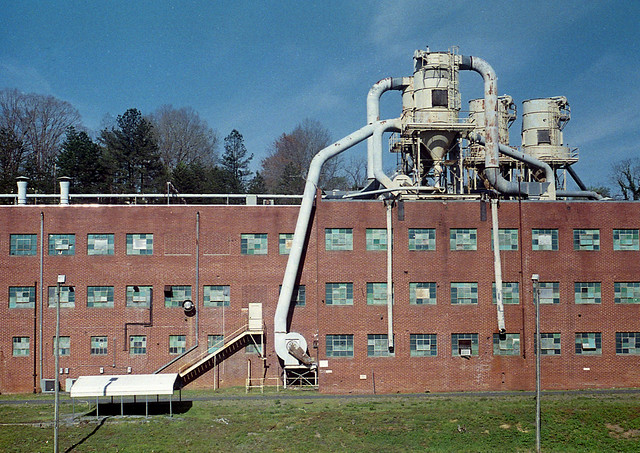Industrial Dust Collector: An Effective Solution for Air Pollution Control
Introduction
Industrial processes often produce harmful particulate matter that poses a significant risk to both the environment and human health. To combat this issue, the use of industrial dust collectors has become increasingly common. In this art

icle, we will explore the manufacturing process, features, advantages, usage methods, tips for selecting these devices, and conclude with their overall effectiveness in addressing air pollution concerns.
Manufacturing Process
The industrial dust collector is built using advanced technology and high-quality materials. It consists Particle removal system of several key components such as filters, blowers, ducts, hoppers, and control systems. The device works by capturing particulate matter released during various industrial operations to ensure cleaner air quality in the surrounding e Air pollution control device nvironment.
Features
1. Particulate Matter Collector: An integral part of an industrial dust collector system is its ability to effectively gather particulate matter emitted by different manufacturing processes.
2. Air Pollution Control Device: With stringent environmental regulations in place globally, having an efficient air pollution control device like an industrial dust collector ha OIL SUCTION MACHINE s become imperative for industries.
3. Particle Removal System: This equipment utilizes advanced filtration techniques to remove even the finest particles from the contaminated air stream efficiently.
4. Dust Filtra industrial dust collector tion Unit: Industrial dust collectors are equipped with highly efficient filtration units that help eliminate hazardous substances before releasing clean air back into the surroundings.
5. Industrial Air Purifier: These devices act as powerful purifiers that improve indoor and outdoor air quality within industrial settings.
Advantages
1) Improved Work Environment:
– Reduced employee exposure to airborne contaminants results in better working conditions leading to increased productivity.
2) Compliance with Regulations:
– Using an appropriate dust collection system helps industries me industrial dust collector et strict regulatory standards aimed at minimizing pollutants’ release into the atmosphere.
3) Protection of Machinery:
– By preventing particulates from entering machinery or sensitive equipment like electronic control panels ensures longer life span and reduces costly repairs and downtime.
4) Reduced Health Risks:
– Industrial dust collectors play a vital role in safeguarding human health by minimizing exposure to harm

ful particulate matter, ultimately reducing the risk of respiratory diseases.
Usage Methods
1. Installation: The industrial dust collector shou Particulate matter collector ld be installed near the emission source or at a centralized location depending on the facility layout to ensure optimal performance.
2. Regular Maintenance: Routine inspections, filter replacements, and cleaning are essential to maintain efficient operation and prolong the equipment’s lifespan.
3. Monitoring Air Quality: Employing air qual industrial dust collector ity monitoring systems alongside an industrial dust collector can help identify potential issues promptly and take necessary preventive measures.
How to Select the Right Industrial Dust Collector?
Choosing an appropriate industrial dust collector requires careful consideration of several factors such as:
1) Capacity Requirements: Assessing the volume of particulates generated is crucial in determining an appropriately sized unit for maximum efficie

ncy.
2) Filtration Efficiency: Understanding particle size distributions will aid in selecting filtration units capable of capturing specific pollutants effectively.
3) Industry-Specific Considerations: Each industry has its unique challenges and requirements; therefore, it is essential to choose a system that caters specifically to those industrial dust collector needs.
Conclusion
Industrial dust collectors have proven their effectiveness in improving air quality within various manufacturing environments. By incorporating these devices into processes, industries can mitigate environmental pollution while ensuring healthier conditions for workers. When selecting industrial industrial dust collector dust collectors, it is imperative to consider capacity needs, filtration efficiencies, and industry-specific factors for optimum results. Deploying advanced air pollution control devices like industrial dust collectors showcases commitment towards sustainability while complying with regulatory standards.”

